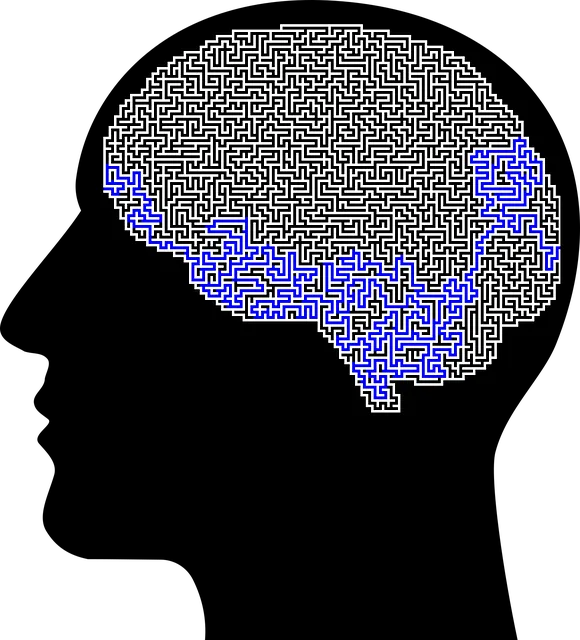Kaiser Permanente Behavioral Health Center Denver focuses on building resilience as a core element of mental well-being. They offer evidence-based programs like Resilience Building Exercises, Mindfulness Meditation, and Trauma Support Services tailored to individual needs. Through community outreach, they create safe spaces for support networks. Their specialized services, including coaching and workshops, empower residents to manage stress and foster a healthier cityscape. The center provides personalized therapy, counseling, and support groups, with a dedicated team focusing on recovery. Resilience-building exercises target specific communities, offering diverse activities for individual and group learning. Success is measured through holistic improvements in mental well-being, emotional regulation, and life satisfaction, making KP Denver Center a leading provider of hope and recovery.
At the Kaiser Permanente Behavioral Health Center in Denver, implementing RFM (Risk, Frequency, Money) analysis and resilience building exercises has transformed care delivery. This strategic approach targets high-risk populations within the bustling metropolis, focusing on those who frequently engage with services but may not have substantial financial resources. By implementing tailored resilience building exercises, the center enhances behavioral health services, fostering a supportive environment that promotes healing and recovery. Through a step-by-step guide and continuous improvement measures, the Denver center showcases how these initiatives can revolutionize care.
- Understanding RFM and Resilience Building Exercises at Kaiser Permanente Behavioral Health Center Denver
- The Importance of Behavioral Health Services in a Metropolitan Setting
- Targeting High-Risk Populations through RFM Analysis
- Implementing Resilience Building Exercises: A Step-by-Step Guide
- Measuring Success and Continuous Improvement at the KP Denver Center
Understanding RFM and Resilience Building Exercises at Kaiser Permanente Behavioral Health Center Denver

At Kaiser Permanente Behavioral Health Center Denver, we recognize that building resilience is a cornerstone of mental well-being. That’s why our center integrates Resilience Building Exercises (RFM) into our comprehensive approach to behavioral health care. RFM involves evidence-based practices designed to equip individuals with the tools they need to navigate life’s challenges and adapt to change, fostering a sense of empowerment and strength.
Our programs, including Mindfulness Meditation sessions and Trauma Support Services, are carefully tailored to meet the unique needs of our diverse community. We also believe in the power of connection, which is why we’ve incorporated a Community Outreach Program Implementation strategy to create safe spaces where individuals can share experiences, build support networks, and cultivate a collective sense of resilience. Through these initiatives, Kaiser Permanente Behavioral Health Center Denver strives to empower individuals, families, and communities to thrive despite adversity.
The Importance of Behavioral Health Services in a Metropolitan Setting

In metropolitan areas like Denver, where the pace of life is often fast and demanding, behavioral health services become even more crucial. The Kaiser Permanente behavioral health center in Denver plays a pivotal role in addressing the unique mental health challenges faced by urban residents. With a bustling cityscape filled with hustle and bustle, individuals may struggle with stress, anxiety, and mood disorders, making access to specialized care essential. This center offers a safe haven for folks seeking support for their emotional well-being.
Beyond traditional therapy, the Denver behavioral health center focuses on innovative programs like mental wellness coaching and self-esteem improvement workshops. These initiatives aim to empower individuals with coping strategies and skills to enhance their overall resilience. By integrating such programs, the center ensures that residents have access to comprehensive care tailored to their needs, ultimately fostering a healthier and more vibrant urban landscape.
Targeting High-Risk Populations through RFM Analysis

Implementing Resilience Building Exercises: A Step-by-Step Guide

Implementing Resilience Building Exercises at a Kaiser Permanente behavioral health center in Denver involves a structured approach to enhance mental well-being and reduce the impact of stress. Start by identifying specific groups or individuals within the community who could benefit most from these exercises, considering factors like age, mental health history, and socioeconomic status. This targeted approach ensures that resources are allocated effectively.
Next, develop a diverse range of exercises focusing on various aspects of resilience, such as mindfulness, stress management, emotional regulation, and social support. Incorporate both individual and group activities to cater to different learning styles and foster a sense of community. Regularly evaluate the program’s effectiveness through feedback mechanisms and adjustments, ensuring continuous improvement based on participants’ needs. Additionally, integrate Mental Illness Stigma Reduction Efforts into these sessions to create a safe and supportive environment, encouraging open discussions about mental health challenges. Complement this with Public Awareness Campaigns Development to educate the wider community, promoting understanding and empathy. Encourage participants to adopt a consistent Self-Care Routine Development for Better Mental Health, providing tools and resources to maintain resilience beyond the structured exercises.
Measuring Success and Continuous Improvement at the KP Denver Center

At the Kaiser Permanente behavioral health center Denver (KP Denver Center), measuring success goes beyond mere numbers. They employ a holistic approach to assess the effectiveness of Resilience Building Exercises (RFM) by gauging improvements in participants’ mental well-being, emotional regulation, and overall life satisfaction. This includes regular feedback sessions where individuals share their experiences and progress, providing valuable insights for continuous improvement.
The KP Denver Center actively incorporates Inner Strength Development, Mindfulness Meditation, and Positive Thinking techniques into their RFM programs. By fostering a supportive environment that encourages open dialogue, they ensure these exercises remain dynamic and relevant. This commitment to ongoing evaluation and adaptation has led to notable advancements in participant resilience, making the center a beacon of hope and recovery in the community.
The implementation of RFM (Risk, Frequency, and Money) analysis and resilience building exercises at the Kaiser Permanente Behavioral Health Center Denver has demonstrated significant benefits in enhancing behavioral health services. By targeting high-risk populations and employing structured resilience exercises, the center has successfully fostered a more resilient community. This approach not only improves individual well-being but also contributes to the overall vibrancy of the bustling metropolis. As the KP Denver Center continues to measure success and refine its strategies, its innovative practices can serve as a model for other healthcare organizations aiming to revolutionize behavioral health care in today’s digital era.






